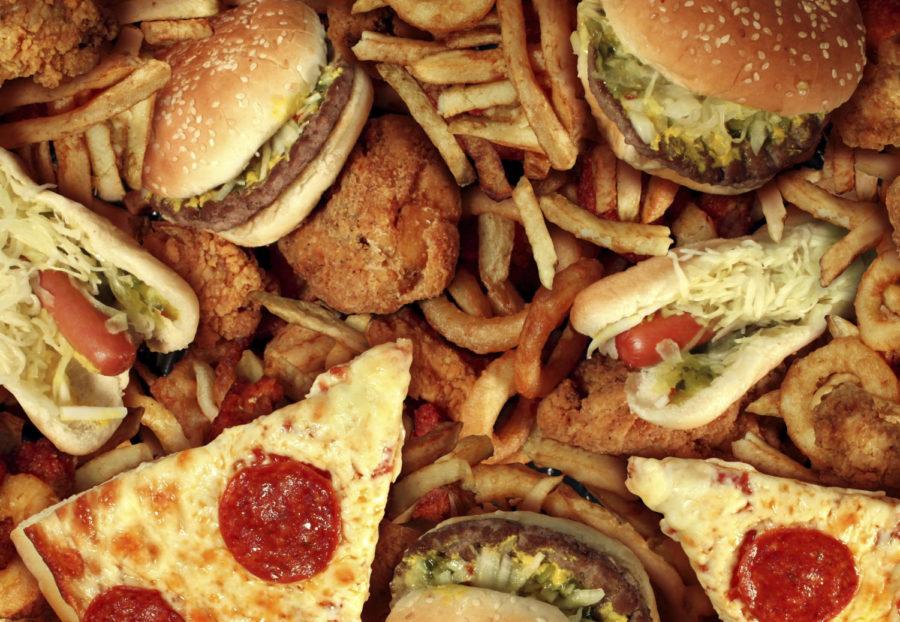Research justifies reasoning for craving junk foods
Junk food
April 1, 2015
Eating just one french fry seems impossible. Having the willpower to take only one bite of ice cream seems unbearable. Recent studies prove that these comfort food cravings — and the indulgences following the first bite — aren’t necessarily our fault.
The University of Michigan performed a study that explored food addiction. The study found that highly processed foods or foods with added fat or refined carbohydrates activate the same reward centers in the brain that are also stimulated by certain drugs, like cocaine.
Tessa Allred, junior in kinesiology and health, shares why it’s important for students to develop and maintain healthy eating habits during their young adulthood stage.
“Having a diet high in fat, sugar and salt may not seem problematic during your 20s, but ask any older adult who has suffered a heart attack if they wished they would have maintained a proper diet earlier in life,” Allred said. “Most would advise choosing healthier options to reduce costly health care in the future.”
In the University of Michigan’s study, some participants developed food dependency, causing them to experience withdrawals from mostly processed food, similar to a drug addiction.
Although when they tested the participants with healthier food items that were unprocessed, no addictive behavior occurred.
Erica Schulte, Michigan psychology doctoral student and the study’s lead author, explained how these findings could affect us in the future.
“If properties of some foods are associated with addictive eating for some people, this may impact nutrition guidelines, as well as public policy initiatives such as marketing these foods to children,” Schulte said.
In other words, these findings could be big trouble for some of our beloved fast food joints in the near future. It’s no secret American culture has become dependent on fast food on a day-to-day basis and with obesity being such a prevalent issue throughout our country, this change could be beneficial.
“Americans live busy, on-the-go lifestyles and fast food chains support that,” Allred said. “In order to reverse the negative effects fast food has on our health, we as a society have to change our lifestyles. We have to start slowing down, cutting back on unnecessary activities and responsibilities, and really make physical activity and nutrition a priority.”
Michele Ries, junior in dietetics, says it’s always a good thing to be mindful of the foods you eat. If you know that certain foods are more addictive and they become a problem for you, it can help to identify what needs to be cut out of your diet.
“Try to keep some healthy snacks on hand in ready-to-eat portions,” Ries said. “If they’re convenient, you’ll be more likely to eat them.”
So if you have a hankering for a large pepperoni pizza, know this kind of behavior isn’t out of the ordinary, but also be aware of how dependent you are on certain foods, junk food in particular, and try to limit indulging in every craving you have.







